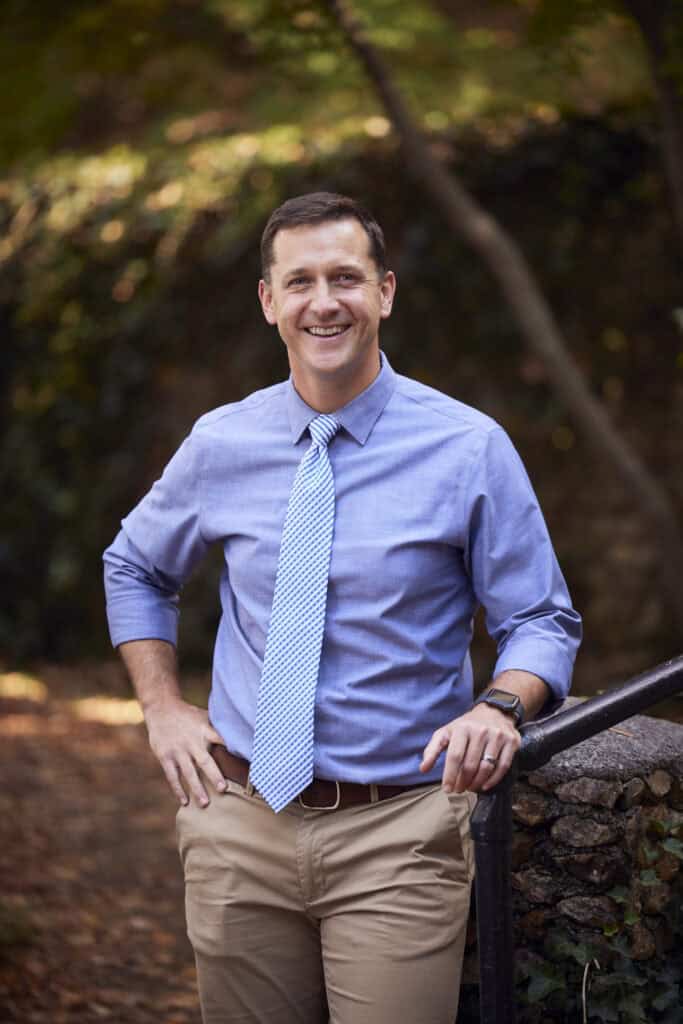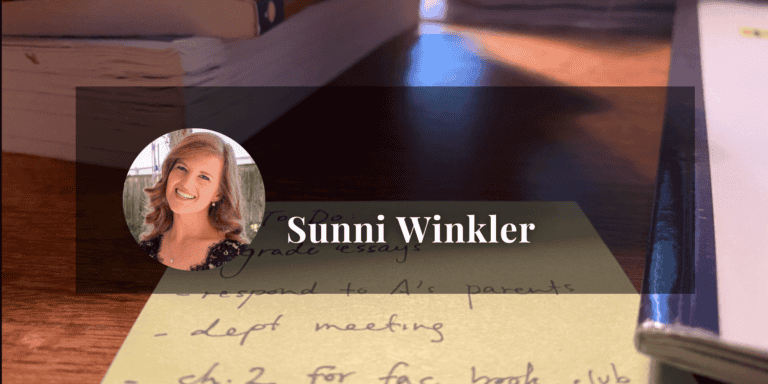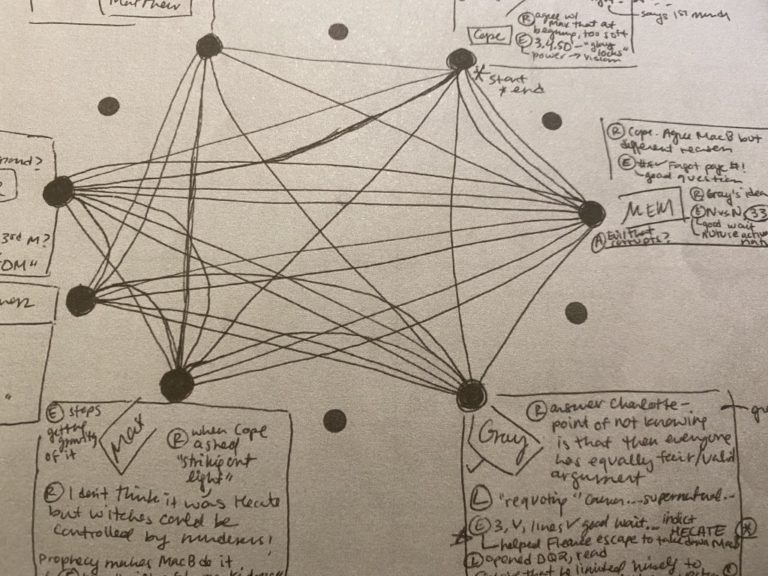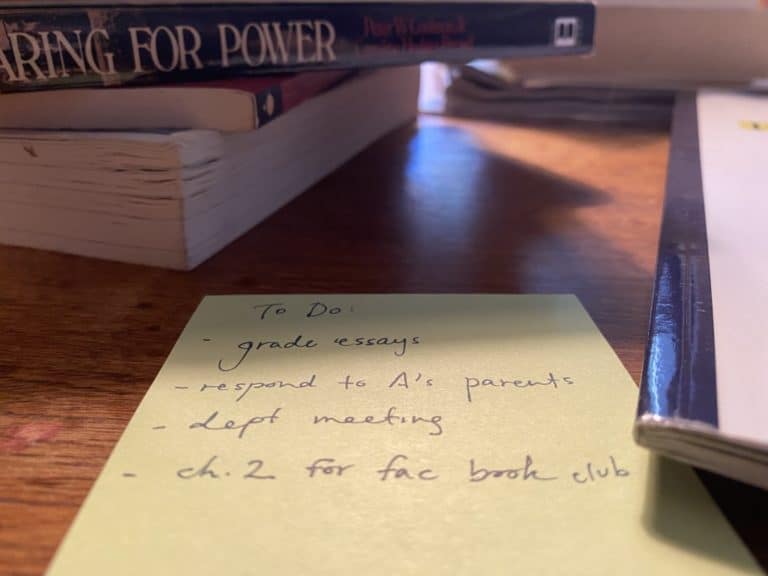R.E.A.L.® Teacher Feature: Eamon Thornton
Thank you to Eamon Thornton for sharing his R.E.A.L. life with us! Eamon is a high school English teacher at the McCallie School in Chattanooga, TN. Here are his thoughts on discussion, R.E.A.L.®, and learning. This interview has been lightly edited for clarity.
Name: Eamon Thornton
Hometown: Atlanta, Georgia, but I was actually a boarding student here at McCallie.
Current school: I teach ninth grade honors English here at McCallie in Chattanooga, TN.
Eamon, thanks for being here today – we are thrilled to have a conversation with someone who has so clearly already established himself as a stellar R.E.A.L. practitioner even in year one of the program! To start us off, could you describe yourself as a student in three words?

As a student, I would say I was gifted, lazy and that autonomy was the main thing that I wanted. I wanted to be able to do what I wanted to do, so I could be really passionate about certain things if I was the one driving the car, but I would also just be really reluctant if I didn’t think there was value in what we were doing in class.
How about a favorite teacher?
My senior year English teacher was the one who kind of hooked me on the subject. You know, so much of high school, at least in my mind, was about getting into college. But my AP English was the one guy that really didn’t teach to the test and was really student driven. I think we even got to choose one of the books that we read in the second semester.
Turning to you as a teacher: when it comes to discussion, what’s your “why”? In other words, why do you think discussion is important in your class?
What ultimately drove me to English is that it is one of the primary subjects where people really get to voice their own opinions, and you don’t have an authoritative text. I’ve always tried to teach from a place that really tries to grow that in students, and to free them up to have their own interpretation. With all the websites like Spark Notes and Gradesaver and ChatGPT, I love the ability to challenge students to think for themselves, and say to them, “okay, well, sure. I mean, that’s what everybody says about that thing but what do you think?” And in discussion, that’s a place where they can really do that, and where they can ask that of their peers, and ask follow up questions, “well, why do you think that? Where do you see that?” I’ve struggled for probably 10 to 12 years now on how to have those discussions in a way that allows for that thinking, and that I am able to evaluate and have clear guidelines for students so that they know what I’m looking for.
You’re definitely not alone in those pedagogical challenges – that’s why we built R.E.A.L.! So, when you’re having a class discussion, what are the learning goals that you focus on for your students?
For me, I care less about whether the students remember who the characters are in a specific novel in the long term. I want students to develop the communication they need for life beyond my classroom – and to practice doing so with the text at hand.
In the last few years, given all that’s happening in the world, students are really struggling to do this. I generally have some kind of content assessment first – like a book test that ensures students are engaged with the content – so that they are structured for success in discussion. It’s hard to have a discussion if the kids don’t know the text!
But, more than anything, the skills that I try to focus on are related to Excerpting: how do you support your claims with the text? If you say that this character is this way, show me in the text where there’s something that he says, or some narration about him, or some particular word that demonstrates your point. I tell students, “I’m more interested in how you back up your opinions than whether you’re right or wrong.”
Before your first R.E.A.L. discussion, what were you worried about going in?
I don’t know if I was really worried about anything in particular – maybe because I’m a lacrosse coach as well as a teacher, and I constantly preach to my players “don’t be afraid to make mistakes.” I tell them a lot “let’s just give it our best shot and see where our mistakes are, and learn from there.” So, I kind of went into the first R.E.A.L. Discussion with that mindset, and tried to emphasize that to students as well. We did a practice R.E.A.L. and we stopped at various points and talked about things – so I’d given them a lot of training before we got into it.
What challenges have you faced in your first year using R.E.A.L.?
What I have seen is that in the beginning, it turns into popcorn reading where students just want to read their excerpt, or their prep, and the next guy will be like, well, here’s another quotation, and here’s what I got out of it. There’s no connectivity or building and synthesizing. That’s the biggest thing that I’ve tried to lead them into more of over the first semester. We’ve talked about this a lot as a class, and now I see it on their own after discussion reflections.
I’ve thought about how to address this, and I think what I’m going to try to do is actually have them observe each other. Because boys, especially ninth grade boys, are really good at pointing out what other people do poorly! And during the discussion they can have blinders on about themselves. So, I’m going to have one group go and the other group observe, and then halfway through, flip it. I’m hoping that that’s going to help them see the moves their classmates make and then in the debrief talk about what we all saw.
I think it’s also so interesting when students see discussion in action because I think sometimes students are eager to get their voice in, or they’re anxious about speaking in class and the anxiety or the instinct to talk can get in the way of what they’re saying and how they participate in the discussion.
I honestly think one of the things I emphasize in my class is that English is so different from the other subjects because I’m not just checking for retention. The goal of the discussion is not for me to see that you did the reading and that you did your discussion prep. But that’s still where students’ brains are, because it’s kind of been indoctrinated into them that the class discussion is to show that they did their homework. So in using R.E.A.L., the goal of discussion is not to show me that you read the chapter and completed your discussion prep; it is about expressing and backing up your opinions.
Can you think of a moment in using R.E.A.L. this year where it clicked for students?
I remember there was one student who made a claim, and another student in the group disagreed with him, and as that student was disagreeing, the original student used an NVC, like “hmm I agree with your disagreement with my point.” And I just remember thinking, oh wow! That’s a very visual moment that encapsulates that goal, that the discussion is a kind of a threshing floor where you’re supposed to just put it out there, and in that process, really figure out what you’re trying to say and what you think, and it’s okay to change your mind during the discussion.
“I remember there was one student who made a claim, and another student in the group disagreed with him, and as that student was disagreeing, the original student used an NVC, like “hmm I agree with your disagreement with my point.” And I just remember thinking, oh wow! That’s a very visual moment that encapsulates that goal, that the discussion is a kind of a threshing floor where you’re supposed to just put it out there, and in that process, really figure out what you’re trying to say and what you think, and it’s okay to change your mind during the discussion.“
Eamon Thornton
The last question I have is kind of a fun one. Do you have any new year’s resolutions?
We stopped doing resolutions, my wife and I probably eight years ago, but we picked up on having a one word focus for the year. My word this year is “devote”. So I’m trying to be more intentional about how I devote my time, more to family, more to rest, and just try to slow down this crazy world a little bit.
Thanks so much, Eamon. What tremendous insights and thoughts. I’m excited to see what the second semester holds!






